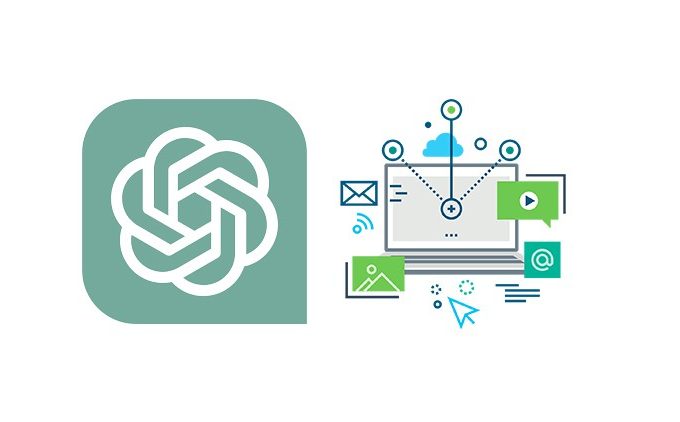Definition of e-learning
E-learning is the process of acquiring knowledge through electronic technologies and sometimes through the media. It can also be defined as a formalized teaching-learning system that uses electronic resources.
It is sometimes referred to as online or electronic learning. E-learning can be based within or outside a classroom. In either case, devices like computers or other internet forms are utilized.
The E-learning market is growing
The e-learning market is a growing phenomenon. It is currently worth more than 200 billion USD. The market is set to hit more than 350 billion dollars in the next four to five years. This is very impressive, considering that merely five years ago, the market was worth 107 Billion.
The pandemic has played a significant role in the growth of the electronic learning market. However, even before the coronavirus pandemic, the market was still growing significantly in different parts of the world. The development of this market can be attributed to the numerous benefits that this type of learning has to offer.
Benefits of e-learning
Below are some of the primary advantages that e-learning in Africa has to offer and the reasons why it keeps increasing in popularity.
#1 Learning from home or Accessibility
One of the main reasons why e-learning is increasingly growing in popularity is because it is very accessible. This form of learning allows students to acquire knowledge from the comfort of their home.
It also allows students access to education that would otherwise not be available to them. With online learning, students can acquire knowledge from an institution that is across the continent easily.
It also allows students who are juggling work and education to access education without forfeit their work. Students with disabilities can also easily access online education.
#2 Flexibility
This type of learning is also flexible for both educators and students. With electronic learning, all you need is a stable internet connection and a device with internet connectivity capabilities. With these two elements, you can turn your home, office, or any other place into a classroom quickly.
With the availability of high-speed internet connections and affordable prices, it is increasingly more comfortable for students and educators to interact through electronic learning. For students looking to enhance their professional skills, online education is also the best choice because of the endless opportunities.
The internet offers thousands of hours of educational content that can be used to boost student’s knowledge and skills.
#3 Affordability
Electronic learning is affordable because students do not have to spend money moving from one place to another to access education. For instance, students from African can acquire European and American standards of education from prominent institutions without having to spend money moving to another continent.
Students also do not have to spend a lot of money on the internet because the market is currently packed with a wide range of high-speed internet connection options at affordable prices.
Additionally, the cost of acquiring electronic learning is significantly lower than conventional learning. The cost of getting an online degree costs at least a tenth of their counterparts.
Therefore, electronic learning paves the way for students who are limited by resource availability in their areas or their location. Perhaps this is one of the primary reasons why e-learning keeps increasing in popularity, especially during the pandemic when the global economy has taken a severe hit.
#4 Easy access or low restrictions
Electronic learning offers minimal restrictions as compared to traditional classroom learning. In electronic learning, students get to choose from thousands of course options, and they are not restricted by what a university has to offer.
Location is also not a restriction in online education because students can acquire knowledge from facilities that are across the continent from where they are without any restrictions.
It is also worth noting that electronic learning is straightforward to access. All students need is a computer or tablet that can access the internet and a suitable internet connection.
#5 Eco-friendliness
In electronic education, there is also a lower level of environmental impact. This is because there are less printing and travel for learners. Since the whole process is electronic, all learning materials are electronic, and there is no need to move from one place to the other in pursuit of education.
Established institutions offer blended learning
Blended learning is an educational approach that combines both online education elements and conventional class-based learning. This learning type requires learners to take their courses online with assistance from an instructor through virtual means.
Following the rapid increase in popularity and demand for online learning, established institutions have blended learning. This means that they allow students to take classes online. However, this does not mean that they can control their learning without any instruction from instructors.
It also involves some elements of control over time, path, and place on the part of the students. In simpler words, a portion of the course is learned online, while an instructor leads the other portion through elements like webinars.
The main reason why established institutions currently offer this kind of learning is to have an edge in the changing approaches to education. Another reason is that because, through this type of learning, institutions can create an integrated environment for learning.
Additionally, it allows the institutions to take in more students without worrying about the available resources to host many students.
E-learning helps to close the education inequality
E-learning is playing a significant role in eliminating education inequality. Educational inequality refers to the unequal distribution of learning resources like school funding, experienced instructors, books, and technologies.
E-learning is spearheading a culture where all students from different parts of the world can access the same education level. Students from parts of the world where educational inequality is dominant can access the same quality of education as privileged students through online platforms.
For instance, students in Africa who are historically disadvantaged and lack quality education can get it through online sources without necessarily spending a lot of money in the process.
Established institutions providing blended education are also playing a significant role in this area by allowing international and national students access to quality education.
How e-learning improves education in Africa
There isn’t a doubt that online learning removes the geographical barriers to learning, as is the case with traditional classroom education.
E-learning was introduced to Africa in the 1990 era after the computer hit the market.
Since then, as e-learning continues to increase in popularity globally, it also keeps getting more popular in Africa.
Below are some ways through which e-learning has improved education in Africa;
• It has allowed students to gain access to global education. By doing so, electronic learning has created a way for African students to get the same education level as students in other continents. This helps eliminate educational inequality.
• It has helped African students acquire and develop skills that are in-demand in the employment fields. For instance, students get to acquire technical skills, which are highly on-demand in most industries.
• It has brought global opportunities to African students. Such opportunities play a role in the growth of the continent’s economy.
Final word
There are still many challenges facing e-learning in Africa, as we continue to grow things will become better with time and we will witness future trends too.
Though it is unlikely that e-learning will replace the traditional education system but both systems will work together towards a common goal.
Download the ebook; “Mobile Learning in Africa” for more information on this topic. As reader of this guest post you can get it for free!
Author bio:
Jens Ischebeck is an Africa focused distance education specialist. He helps young Africans to get the good education they deserve by using online courses and even earning an online degree.





